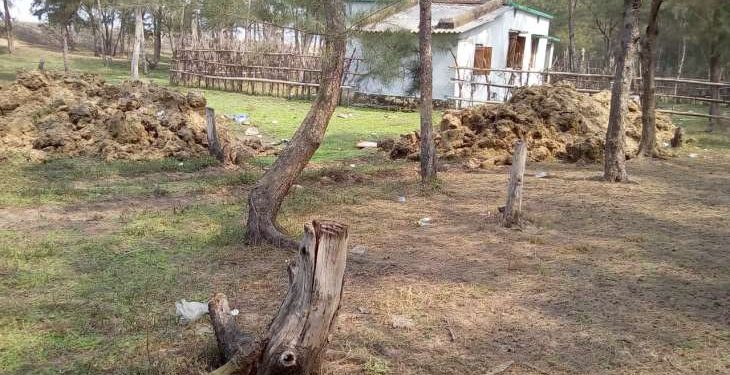Paradip: The seashore stretching from the mouth of the Mahanadi in Paradip to Harishpur-Marichipur in Jagatsinghpur district is considered a reserve forest in official records.
But unfortunately here there are only signboards declaring that the area is a reserve forest. There are no trees or wild animals in this reserve forest.
A pond was dug in this ‘forest’ spending lakhs from the treasury in 2017-18 to provide water to animals and birds, and the forest department constructed a beat house on the shore near the Sandhakuda slum.
In the present situation, the digging of a pond for wild animals is perceived by the public as a means to pocket government funds.
Once the area beginning from the seashore near Paradip town to Ersama Balikuda was covered with mangroves. But there is no sign of the mangroves now, making it meaningless to call the area a reserve forest.
One or two trees can be found at some places in this ‘forest’. Casuarinas that were planted after the 1999 Super Cyclone can also be seen.
Over the years the mangroves have been replaced by industrial units. After 1960, a substantial area of the mangroves was cleared and 15 mega industrial units came up.
A mangrove forest covering an area of around 180 sq.km near the Mahanadi mouth is also likely to be swallowed by industries.
This forest is being cleared since November 2014 for industrial expansion. From 2005 to 2012, lakhs of trees were felled at Dhinkia Nuagaon near Paradip for the POSCO project.
The foundation stone for the Paradip port was laid January 3, 1962. Fisherman Yajna Rout said, “Before construction of the Paradip port there used to be a dense mangrove forest on the shore. Around 57 small and big rivers covering 22,995 acres used to flow from Santara in Jagatsinghpur district to Mahakalapara in Kendrapara district.”
Rapid industrialisation destroyed these rivers and forests, Rout lamented.
The beat house constructed by the forest department to guard the jungle has in fact no guard. There is nobody staying in the beat house now.
“The beat house is far from human habitations, and it has no water and electricity. It is difficult for anyone to stay there,” said forest guard Saujendra Das.
Responding to the report, Kujang range officer Pratap Chandra Mahanty said, “Digging ponds is the department’s regular job. Ponds are being dug in reserve forests to provide water to animals and birds in summer.”
PNN






































